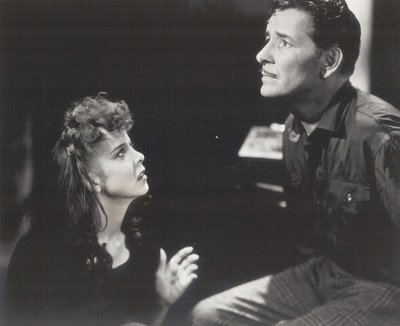
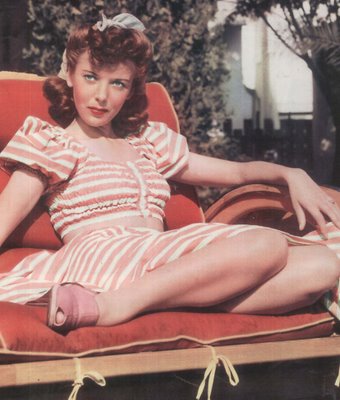
Monday Glamour Starter --- Ida Lupino
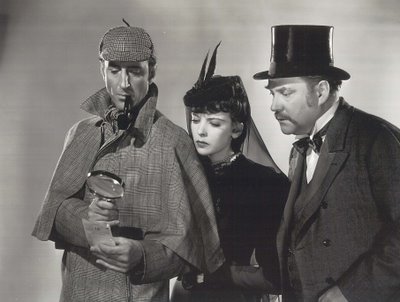
Ida Lupino might have enjoyed a glorious old age had her luck held out a little longer, with a mantle no doubt buckling beneath the weight of awards she’d have collected for pioneering efforts as a director in that notoriously male dominated industry. The women’s studies industry never had the opportunity to knock down Ida’s door for interviews and inspiration either. It’s not that she died too soon. That didn’t happen until 1995, but for at least ten years previous, she’d maintained silence behind the gates and allowed few to enter. The little red devils she’d alluded to often had moved back in to stay, and a personality tormented by dark moods and melancholy finally gave itself over to an anything but splendid isolation. Artistic personalities are often troubled ones, after all --- serenity not among the gifts they’re born to. Ida Lupino was high-strung to the point of caricature. When servicemen encountered her at the Canteen, they asked her to scream. Guests at parties would come up and say, Ida, go crazy, as if this were some parlor trick she could switch on and off like Jimmy Durante doing Umbriago. She had this way of exploding on camera, and off as well. The breakdown she staged in They Drive By Night convinced the town she had to be nearly as cracked in her private life as well. Like Bette Davis, she carried a line in high-octane melodrama, but the public’s taste for that diminished after the war, and like so many actresses who’d had the field largely to themselves during the conflict, Lupino would have to retrench in order to survive. Directing was the invention borne of necessity, and though she’d continue to act into the seventies, it was really behind the camera that she found the greater satisfaction.
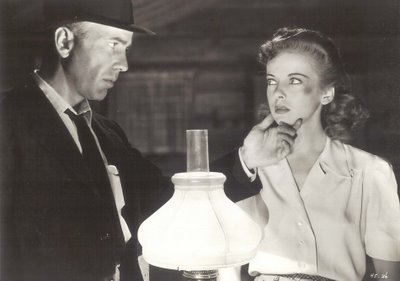
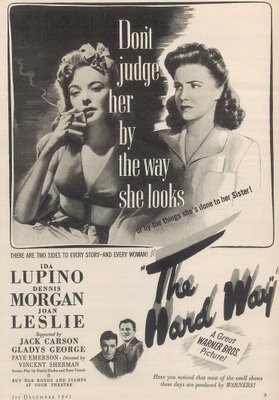

There were seven generations of Lupinos in show business. Ida said late in life that she only got into it to please her father and uphold tradition, but judging by her temperament and appetite for flamboyance, I’d say the fruit fell pretty close to the tree. Histrionics were part of her daily routine. As a child in England, she went door to door telling the neighbors of beatings and starvation at home, just to see how they’d react. No truth in that at all, but it did initiate a lifelong habit of embroidering the truth for the sake of impact and showmanship, something she knew all about. There were psychic powers she inherited from her father, and hanged if there might have been something to that, for she managed to anticipate a number of deaths and disasters among friends and family in years to come. Stage and (limited) film work in the UK got her noticed at Paramount, and they brought her over ostensibly to test for 1934’s Alice In Wonderland, but she didn’t want the lead (!) and loudly voiced her desire to play mature parts instead. Being yet a teenager, she did manage to get into adult fare without the encumbrance of ingenue work, but a bout with polio nearly put the whole career aground within months of her arrival stateside. Interviewers found her charmingly arrogant --- I cannot tolerate fools! --- but much of this was just immaturity blossoming in the face of newfound celebrity. The Light That Failed was the 1939 hit with Ronald Colman that really put her over. Edgy, dangerous types became her stock in trade. Warners came calling at $2000 a week, though she reserved the right to do outside pictures at Fox. Rebellion and suspensions at WB were inevitable. She turned down Juke Girl, King’s Row (oops!), and Captains Of The Clouds (come to think of it, she’d have been good in the Brenda Marshall part). Among the ones she did were High Sierra (excellent), The Hard Way (terrific), and The Man I Love (super). Ida Lupino was one fantastic actress in the right kind of picture, but she was luckless in other ways, being accident-prone and out sick a lot. Having Bette Davis around the place didn’t help either, since the best parts always went by we-know-who first.
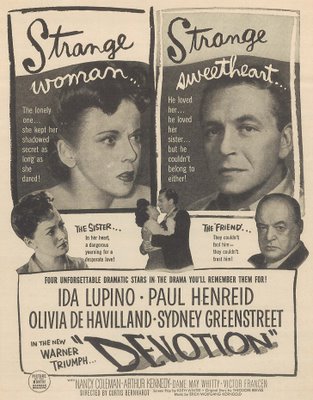
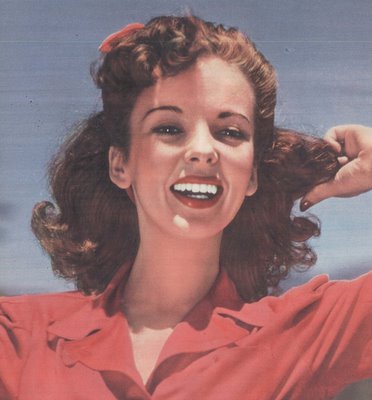
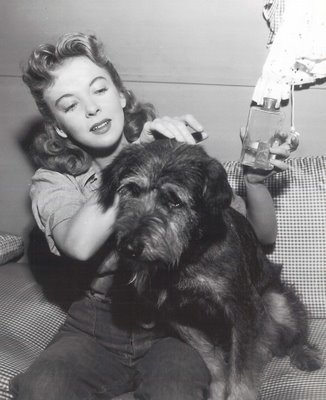
The Warners pact ended on the customarily sour note in 1947, and this is where Ida Lupino got really adventurous. Second husband Collier Young teamed with her in setting up an independent unit called The Filmmakers --- not an unsound venture to go it alone outside those collapsing studio walls, and Lupino still had enough name to get financing for the innovative subject matter she had in mind to film. Not Wanted was a profitable beginning --- a story of unwed motherhood with Ida often filling in for credited director Elmer Clifton --- followed by Outrage, the title of which refers to a rape, and Never Fear, which dealt with polio. In the wake of these, Lupino was the talk of the town, and Filmmakers got a berth at RKO. That might have all been well and good, but wily Howard Hughes took advantage of Collier Young’s negotiating weakness, and locked them in a no-win contract, for which Lupino never forgave her husband. Now even money pictures brought nothing back to Filmmakers. Hughes was skimming the gravy before they could dip their bread. The greater pay-off for Ida came not from features she directed, but melodramas in which she performed, such as Beware, My Lovely and On Dangerous Ground. Young got the idea Filmmakers should distribute as well as produce. Ida knew that would come a cropper. They tried to recoup by accepting product placement in the movies. Coca-Cola, United Airlines, and Cadillac kicked in for The Bigamist, and Ida had to emote in parts of Private Hell 36 with an enormous Pabst Blue Ribbon beer bottle display looming over her shoulder. Independent production was a real salvage operation in those days. It was like prying a quarter off wet cement after the truck’s run over it. Crews opted for location whenever they could. Stage rentals were an unnecessary expense. A noir like Private Hell 36 really benefited from the streets, bars, and trailer parks where it was shot. Those who could survive the 50’s indie race were well equipped to conquer early television as well. At a time when feature prospects were fast rotting on the vine, Ida Lupino made the smart move in that direction.
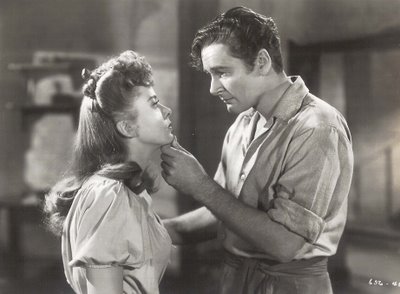
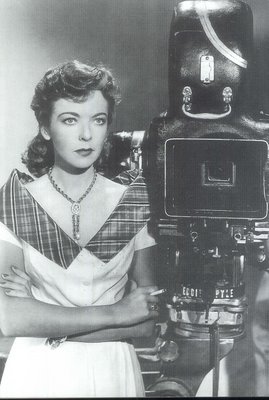
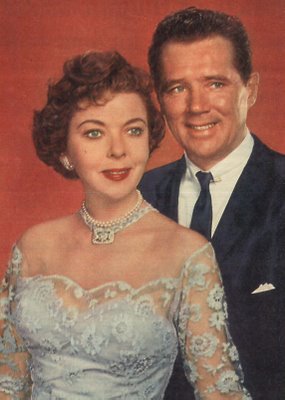
It was Dick Powell who paved the way of transition for the actress and director, luring her to his Four Star umbrella and giving her valuable experience in the rough-and-tumble ways of hurry-up video production. By now, she’d divorced Collier Young and married actor Howard Duff (here with him in a color shot ). Together they had a hit series called Mr. Adams and Eve, which got back some measure of the on-screen fame Lupino had lost during the interim. Series directing became steady work. Richard Boone used her in a group of Have Gun – Will Travels, and an aptitude for suspense programs got her gigs on Alfred Hitchcock Presents, Thriller, and The Twilight Zone. She was known as the most tactful of directors --- her chair canvas read Mother. All of this carried her right into the sixties. She even called Action for some Gilligan’s Island episodes. On the personal front, Dick Powell called when he found out he had cancer and requested she spend the final months with him (June Allyson was seeking divorce at the time). They got together until the last few weeks when June came back. This was something I did not know until reading the definitive Ida Lupino biography by William Donati, which you can, and should, get HERE. According to Donati, who spent lots of time with Lupino during those sad final years, she pretty much withdrew after memory lapses made it near impossible to retain dialogue. There was a Charlie’s Angels appearance she barely got through, then retreat to the quiet of home. She should have received a special Academy Award for all she accomplished, but why would they do something right all of a sudden? The Filmmakers pics she directed are all over the place in terms of ownership, so who knows if they’ll ever see the light of day again…